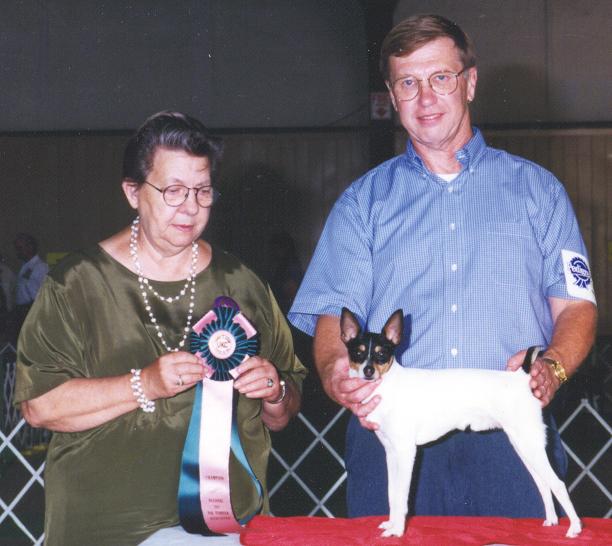United
Kennel Club/
American
Kennel Club Recognition

Puppy purchasers often raise
the issue of why this breed was first registered with the United
Kennel Club since registration with the American Kennel Club has
long been a mark of canine excellence. As outlined earlier, the
birth of this breed is tied historically to the U.K.C. However,
in the 1950s some breeders did approach the A.K.C. for recognition.
At that time there were questions about variance in type and reservations
about the breed name with “Amertoy” being offered as an alternative.
In later years, A.K.C. officials deferred recognition since the
U.K.C. already offered a complete program for breeders and exhibitors
and there was little need for duplication. However, in July 2000,
the TFT was granted full recognition by A.K.C. with registration
beginning in March 2001, exhibition in the miscellaneous class to
begin in April 2001, and exhibition in regular classes for championship
points to commence in January 2003.
Dual recognition allows the TFT to thrive in both
registries and gives TFT owners the opportunity of competing for
conformation, obedience, and agility titles in both registries.
The A.K.C. has long been a well-known force in canine competion
in the U.S. Less well known are the features of the United Kennel
Club. Established in 1898, the U.K.C. is the second oldest and second
largest registry of all breeds of purebred dogs in the United States.
A feature of U.K.C. registration is that the papers of inbred dogs
are stamped to indicate this status. This policy has served
to discourage inbreeding and has resulted in relative freedom from
genetic diseases for the TFT. A non-professional, friendly atmosphere
distinguishes U.K.C. conformation shows. Professional handlers are
not allowed; excessive grooming is discouraged and baiting with toys or
food is left to the judge's discretion. Most of the entries are exhibited by breeder/owners:
thus, much can be learned by interacting with such breeders at these
low- key events.
